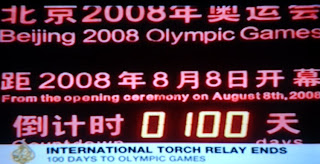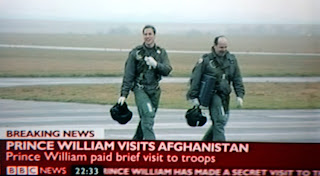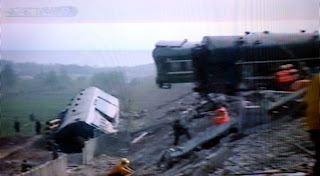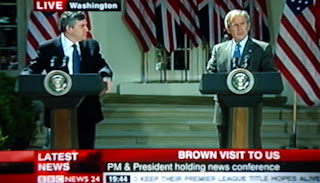
Propaganda or coincidence: Gere in the 1997 film Red Corner
When Fu Ying spoke of a ‘counter reaction’ to anti-China protests, she may not have expected the barrage of criticism to her article in the Daily Telegraph which was published last Saturday. The Chinese ambassador had written her account in reaction to protests seen in London on the 6th April when the Olympic torch was carried on its 52 km route. Following her article hundreds of comments have been posted on the
Telegraph website criticizing her defence of China and its stance over Tibet. While there were supportive comments left on the British newspaper's forum many accused her of perpetuating 'lies' and 'revisionist drivel'.
Almost daily the output from Xinhua and CCTV-9 has included reports of how the further evidence has been collected that showed links to the Lhasa riots and the Dalai Clique. Today the Dalai Clique was the 3rd item in the news followed by another report about life in a Lhasa primary school. Todays report showed how children learned both Tibetan language as well as Mandarin Chinese.
Life in Tibet has been reflected in several documentaries broadcast by several networks over the last few weeks. The BBC has broadcast A Year in Tibet which showed the life experienced by both ethnic Tibetans and Han Chinese in the region. While the programme, which was aired on BBC4, was generally balanced, another documentary shown on Channel Four was highly critical of state repression in Tibet. Undercover in Tibet told the story of how some Tibetan had been subject to enforced sterilization whilst others were the victims of religious persecution. According to the documentary some Tibetans had been moved from their traditional farm lands and forced to live in walled compounds.
Several historical documentaries have also been broadcast in both Western and Chinese media. Over the weekend CCTV-9 showed an in depth historical documentary about Tibet and how China had ruled over the region since the early 18th century. The discussion programme Dialogue also looked at the history of Tibet, looking particularly at the Western interference in the early 20th century which saw the British invasion. The BBC also showed an hour long documentary in which Dan Cruickshank looked at the history of Tibet and how the Dalai Lama fled to India in the latter half of the 20th century.
While all the documentaries were relatively truthful in what was discussed, many were not balanced and only focused on one specific polemic. While Chinese media focused on how many Tibetans were killed by British troops and that others lived a life of serfdom before Chinese rule the programmes ignored the repression of religious freedom and persecution of some Tibetans. Similarly, documentaries broadcast in the UK were selective in their coverage of Tibetan life and history. Dan Cruickshank’s Lost World of Tibet gave little perspective of what happened prior to the Chinese invasion or what China calls the liberation of Tibet. Undercover in Tibet only focused on the problems existing in the region and did not cover any positive issues.
Whenever there is conflict between two states, propaganda plays an important tool for both sides. During the Yugoslav conflict, the state broadcaster showed films like
Wag the dog. The 1997 film starring Robert de Niro, is about a Washington spin doctor who distracts the electorate from a U.S. Presidential sex scandal by hiring a Hollywood producer to construct a fake war with Albania. It would be easy to be cynical as Five showed the 1997 Hollywood film
Red Corner [紅色角落] in the midst of the current rift between the West and China. The film which is currently banned on the Chinese mainland tells the story of a wealthy American businessman working in China and attempting to put together a satellite communications deal as part of a joint venture with the Chinese government. Before the deal goes through, he is framed for the murder of a powerful Chinese general's daughter, and the satellite contract is awarded to his competitor. In a bid to prove his innocence, the businessman and his appointed lawyer gradually unearth further evidence that not only vindicates him, but also implicates powerful figures within the Chinese Central government administration and exposes high levels of conspiracy and corruption. Though China has changed significantly since the film was made, many might have viewed the film as a current critique of China’s justice system. The film also shows real footage of executions, smuggled out of China and included in the film to give added authenticity. Besides the possible coincidence of the scheduling of the film, there is added irony since the main actor is Richard Gere, an outspoken critic of China and pro-Tibetan activist. Because he strongly supports the Tibetan Independence Movement, he is permanently banned from entering The People’s Republic of China. The actor was also banned as an Academy Award presenter in 1993 after he used the opportunity to condemn the Chinese government. In September 2007, Gere called for the boycott of the 2008 Beijing Olympic Games and to put pressure on China to make Tibet independent.
It is extremely unlikely the Chinese government will heed any calls to soften its hold on Tibet. President Hu made a statement this week in which he reaffirmed that Tibet remained a part of China [
BBC], and Foreign Ministry spokesman Jiang Yu further criticised Western media for their “malicious remarks”. She particularly singled out CNN’s Jack Cafferty who she said displayed “arrogance, ignorance and hatred towards the Chinese people”. The spokeswoman demanded an apology from the broadcaster and from Cafferty himself who had “denigrated China and the Chinese people” by “seriously breaching journalistic ethics” [
Xinhua]. During the coverage of San Francisco Olympic torch relay Jack Cafferty was particularly scathing of China saying “I‘ve never seen anything like this...for the people in Beijing this is a preview of the kind of thing they‘re going to have to deal with at some level when these games happen later this summer. Memories of Tiananmen Square come to mind when the military finally cracked down on those pro-democracy demonstrators, what are the Chinese going to do when people sympathetic to the folks in Darfur or Tibet dare to venture out into red square ... with a Tibetan flag or something? The Chinese government is going to be in a very, very difficult position”.
“I think based on China’s record in some of these places like Darfur and Tibet, that you can justify boycotting some of these opening ceremonies but the bigger issue is how do you separate the games from the politics? And I don’t think you can, unless you establish a permanent home for the Olympics like Geneva, Switzerland. It’s a small global village that we’re a part of now...I don’t know if China’s any different, but our relationship with China is certainly different. We’re in hock with the Chinese up to our eyeballs because of the war in Iraq for one thing. They’re holding hundreds of billions of dollars worth of our paper, we’re also holding hundreds of billions of dollars of trade deficits with them as we continue to import their junk with the lead paint on them and poisoned pet food and export jobs to places where you can pay workers less than a dollar a month to turn out the stuff we‘re buying from Walmart. I think they’re basically the same bunch of goons and thugs they’ve been for the last 50 years.”
CNN has reported the story on their website but so far have not made a comment on Jiang Yu’s demand for an apology.
tvnewswatch has attempted to obtain a response from CNN and Cafferty but as yet has not received a reply.
Unusually, CNN’s Live coverage of the relay was not censored in China, though according to John Vause, CNN’s Beijing correspondent, few would have seen the pictures. Only a few select apartment blocks and Western hotels have foreign satellite reception. Most potential viewers in China were likely to have been in bed as the relay started at 04:00 Beijing time.
Besides the propaganda war, business continues. Today the British Chancellor of the Exchequer Alistair Darling was on a visit to China to seek a £100 billion investment deal. But besides the top headline on CCTV-9, the news of the Chancellor’s visit to the Orient was not mentioned in the bulletins of the BBC and Sky News. The news of the visit was however briefly mentioned on the
BBC website. The headlines in the UK focused instead on Gordon Brown’s stated aims to minimise the fallout of Britain’s credit crunch [
BBC].






































